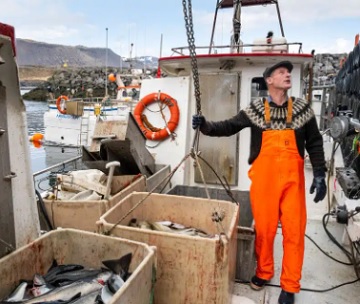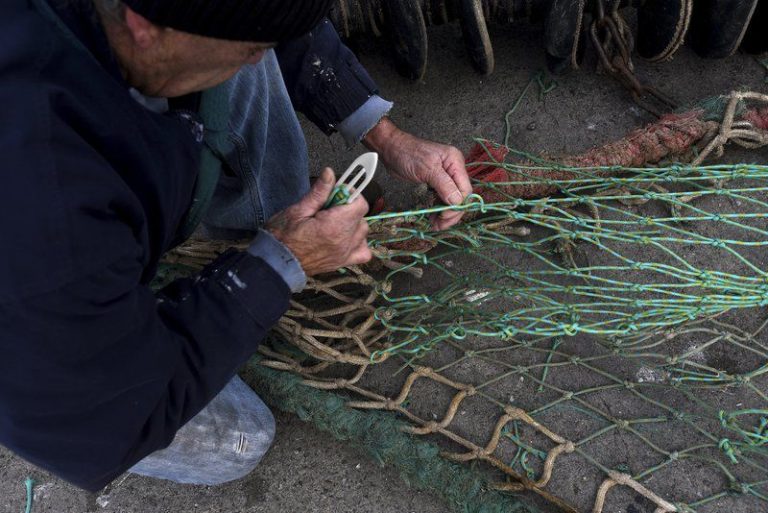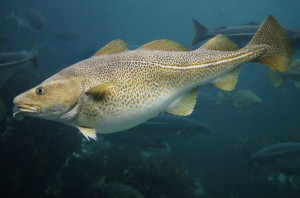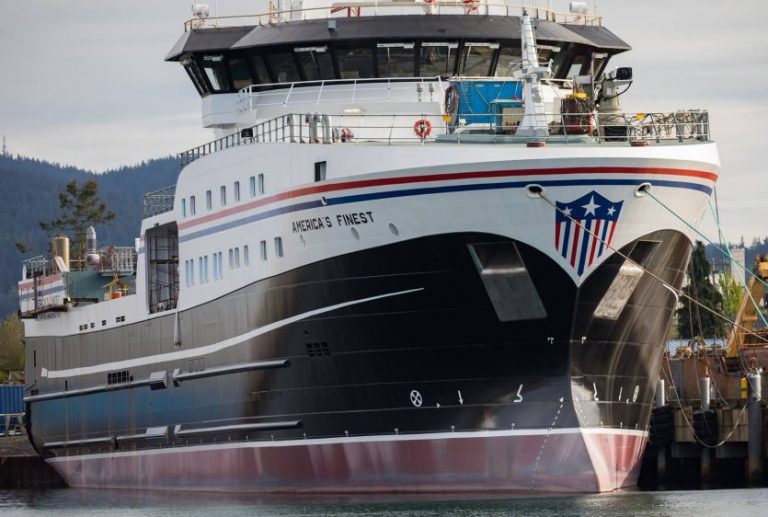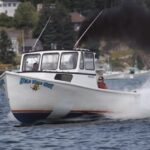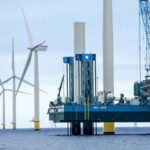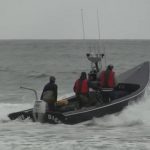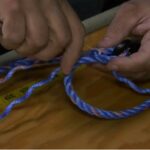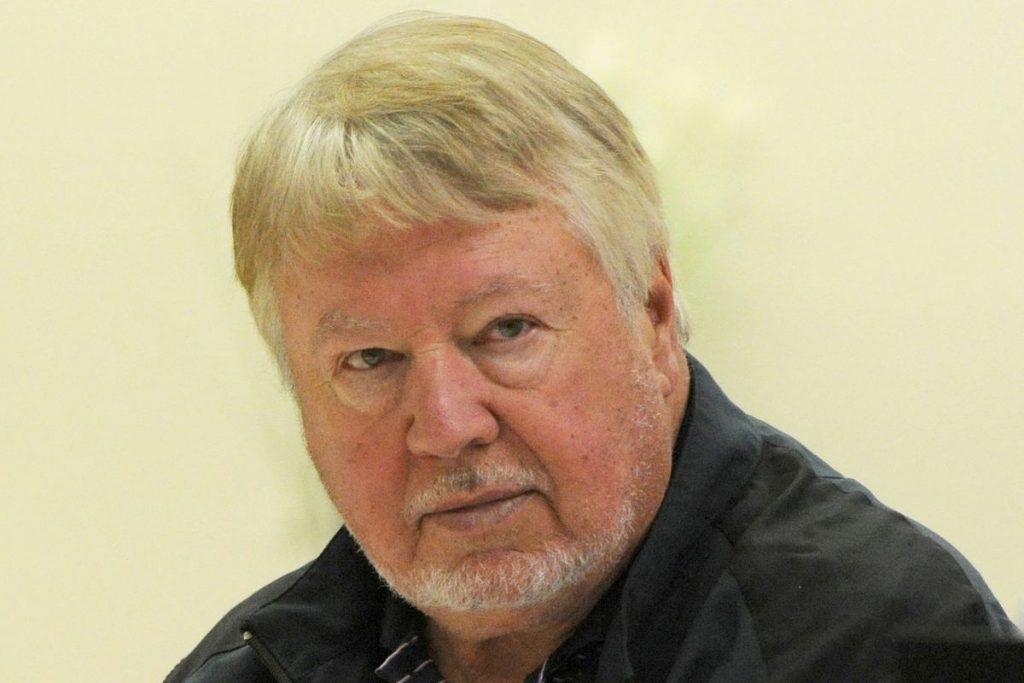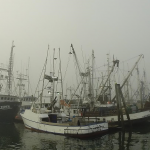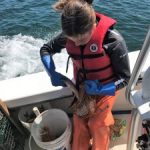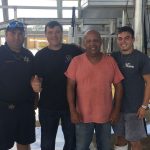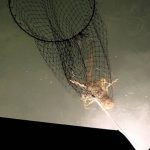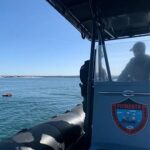Tag Archives: Iceland
In the Shadow of the Volcano
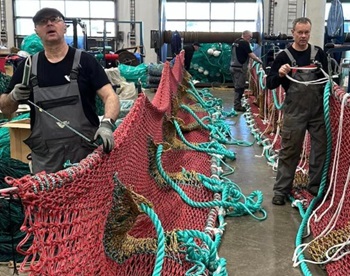 It hasn’t been an easy few months for the inhabitants of Grindavík, the fishing port on the south coast of Iceland that first found itself in the shadow of a volcanic eruption at the end of last year. Today Grindavík is not considered inhabitable, and the town’s inhabitants have been dispersed mainly to neighbouring communities, the majority of them thrown into Iceland’s difficult rental market as they have scrambled to find places to live. There has been a level of uncertainty as to whether or not it might be possible to return home at some point. Fishing gear company Veiðarfæraþjónustan was fortunate enough to be provided with a temporary refuge at Hampiðjan’s net loft in Reykjavík, before finding a new home in Hafnarfjörður. Photos, more, >>CLICK TO READ<< 09:47
It hasn’t been an easy few months for the inhabitants of Grindavík, the fishing port on the south coast of Iceland that first found itself in the shadow of a volcanic eruption at the end of last year. Today Grindavík is not considered inhabitable, and the town’s inhabitants have been dispersed mainly to neighbouring communities, the majority of them thrown into Iceland’s difficult rental market as they have scrambled to find places to live. There has been a level of uncertainty as to whether or not it might be possible to return home at some point. Fishing gear company Veiðarfæraþjónustan was fortunate enough to be provided with a temporary refuge at Hampiðjan’s net loft in Reykjavík, before finding a new home in Hafnarfjörður. Photos, more, >>CLICK TO READ<< 09:47
Grindavík’s Harbor Sees First Trawler Return Since October
 The first trawler to dock in the town of Grindavík since October 24, when the town was evacuated due to a powerful swarm of earthquakes, arrived in the harbour yesterday morning. In an interview with RÚV, Sigurður Jónsson, captain of the freezer trawler Tómas Þorvaldsson, stated that it was important for the town’s spirit to see life in the harbour, as the fishing industry was the lifeblood of the community. He admitted that he had gotten “dust in his eyes” as he sailed towards Grindavík. The vessel was fishing for just under four weeks. more, >>click to read<< 08:45
The first trawler to dock in the town of Grindavík since October 24, when the town was evacuated due to a powerful swarm of earthquakes, arrived in the harbour yesterday morning. In an interview with RÚV, Sigurður Jónsson, captain of the freezer trawler Tómas Þorvaldsson, stated that it was important for the town’s spirit to see life in the harbour, as the fishing industry was the lifeblood of the community. He admitted that he had gotten “dust in his eyes” as he sailed towards Grindavík. The vessel was fishing for just under four weeks. more, >>click to read<< 08:45
Iceland volcano spews smoke, lava in 4th eruption since December – Nearby fishing town evacuated
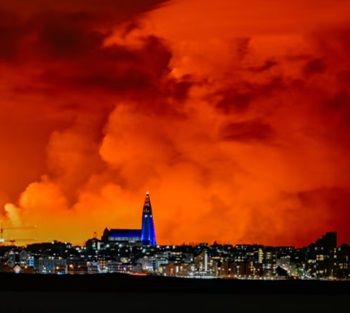 A volcano in Iceland erupted for the fourth time since December on Saturday, the country’s meteorological office said, spewing smoke and bright orange lava into the air in sharp contrast against the dark night sky. The eruption began at 8:23 p.m. local time and the fissure was estimated to be about 2.9 kilometres long, roughly the same size as the last eruption in February, the Icelandic Meteorological Office said in a statement. Authorities had warned for weeks that an eruption was imminent on the Reykjanes peninsula, just south of Iceland’s capital, Reykjavik. Lava appeared to be flowing rapidly south toward the nearby fishing town of Grindavik, where a few of the nearly 4,000 residents had returned following earlier outbreaks, the Met Office said. Video, photos, more, >>click to read<< 12:32
A volcano in Iceland erupted for the fourth time since December on Saturday, the country’s meteorological office said, spewing smoke and bright orange lava into the air in sharp contrast against the dark night sky. The eruption began at 8:23 p.m. local time and the fissure was estimated to be about 2.9 kilometres long, roughly the same size as the last eruption in February, the Icelandic Meteorological Office said in a statement. Authorities had warned for weeks that an eruption was imminent on the Reykjanes peninsula, just south of Iceland’s capital, Reykjavik. Lava appeared to be flowing rapidly south toward the nearby fishing town of Grindavik, where a few of the nearly 4,000 residents had returned following earlier outbreaks, the Met Office said. Video, photos, more, >>click to read<< 12:32
Irish fishermen fury over ‘unbelievable and outrageous’ secret EU deal talks to give Iceland access to our waters
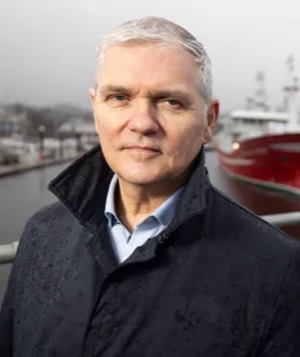 Irish fishermen are up in arms over secret EU talks to give Iceland access to our fishing waters. Our trawlermen are being allocated an extra 15 million Blue Whiting quota this year on condition that Icelandic crews can fish here. The Irish Government claims the talks are “informal” and nothing has been decided yet. But Aodh O’Donnell of the Irish Fish Producers Organisation (IFPO) blasted that they must fight for our fishing industry the way other EU member states do. “They are not an EU member. How is this a fair deal? “Are we getting to catch around 15 million of extra fish in Iceland or EU waters for this deal? No. more, >>click to read<< 19:21
Irish fishermen are up in arms over secret EU talks to give Iceland access to our fishing waters. Our trawlermen are being allocated an extra 15 million Blue Whiting quota this year on condition that Icelandic crews can fish here. The Irish Government claims the talks are “informal” and nothing has been decided yet. But Aodh O’Donnell of the Irish Fish Producers Organisation (IFPO) blasted that they must fight for our fishing industry the way other EU member states do. “They are not an EU member. How is this a fair deal? “Are we getting to catch around 15 million of extra fish in Iceland or EU waters for this deal? No. more, >>click to read<< 19:21
Houses burn as new volcanic eruption threatens Icelandic village
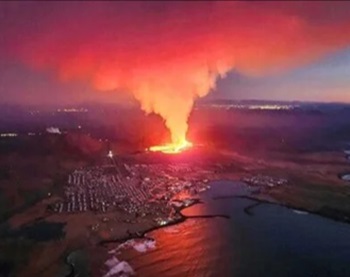 Houses caught fire after a new volcanic eruption sent smoke and lava spewing out near the Icelandic fishing port of Grindavik Sunday, just hours after villagers were evacuated to safety, authorities said. It was the North Atlantic nation’s fifth volcanic eruption in under three years. The most recent occurred just weeks ago on December 18 in the same region, southwest of the capital Reykjavik. “In a little village like this one, we’re like a family, we all know each other as family — it’s tragic seeing this,” local resident Sveinn Ari Gudjonsson told AFP. “It’s unreal, it’s like watching a film,” added the 55-year-old, who works in the fishing industry. 7 photos. more, >>click to read<< 15:48
Houses caught fire after a new volcanic eruption sent smoke and lava spewing out near the Icelandic fishing port of Grindavik Sunday, just hours after villagers were evacuated to safety, authorities said. It was the North Atlantic nation’s fifth volcanic eruption in under three years. The most recent occurred just weeks ago on December 18 in the same region, southwest of the capital Reykjavik. “In a little village like this one, we’re like a family, we all know each other as family — it’s tragic seeing this,” local resident Sveinn Ari Gudjonsson told AFP. “It’s unreal, it’s like watching a film,” added the 55-year-old, who works in the fishing industry. 7 photos. more, >>click to read<< 15:48
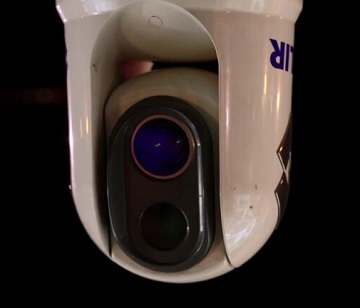
Crew safety on Icelandic commercial fishing vessel reaches new high with additional of FLIR M364C thermal camera
With the FLIR M364 installed, the 72.5 metre Vikingur AK 100, can benefit from its high definition, low light camera, which boasts one of the most advanced FLIR thermal imaging cores, providing an elite level of awareness on the water. The addition of thermal cameras gives a sixth sense for work at close quarters and in poor visibility which can be typical in Iceland. “It really allows the captain and crew more situational awareness, particularly in case of MOB and icy conditions. The captain can easily see the crew on board in the dark and are able to spot dangers in advance or if one of the crew has entered the water. The increased visibility also enables us to see the floats and buoys during purse seining, and although we are yet to obtain hard data for increased fishing performance, it is without doubt making the crews lives easier, and crucially, safer.” Video, photos, >click to read< 08:31
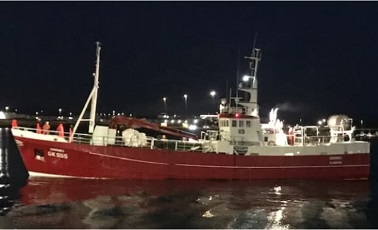
One Dead, Two Injured in Trawler Fire in Iceland
A fire aboard a trawler in the harbor at Njardvik, Iceland claimed the life of one crewmember and left two others injured, according to first responders. At about 0200 hours on Tuesday, a fire broke out aboard the trawler Grímsnes at the port of Njardvik. The vessel was at the pier and was due to depart later in the day, according to local media. Four crewmembers escaped safely, but two were injured, including one with serious burns on his back. The seventh member of the crew did not survive. >click to read< 21:52
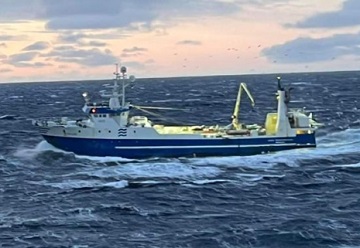
Found debris of a plane and a human skull end up in the net
The crew of Hrafn Sveinbjarnarson GK-255 received part of the plane debris and human remains in the trawler on Wednesday while the ship was fishing in Jökuldýpi, about 50 miles west of Reykjanes peninsula, southwest Iceland. Vísir.is reported the matter first. Captain Kristján Ólafsson tells mbl.is that it is a part of the tail, part of the plane’s exterior and another motor. “It’s not a whole plane, there are no interiors or anything like that. Just parts of the debris,” he says. The debris brought up the human remains, a large part of a skull, according to Ólafsson. “It’s unusual and people started to speculate what it was and then what airplane it was. So when we started to process the fish, there’s more to comes up like airplane parts. There’s also a bag, along with this body part. >clck to read< 18:07
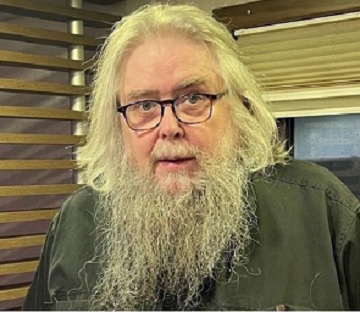
Quitting While on Top
There aren’t many skippers still at the top of their game after half a century in the job behind them. One such is Jóhannes Ellert Eiríksson – best known as Elli – skipper of Brim’s fresher trawler Viðey, who has just completed his last trip. This spring it’ll be 52 years since he joined the crew of sidewinder Thormóður Góði, owned by Bæjarútgerð Reyjavíkur (BÚR) and skippered by Magnús Ingólfsson. Now approaching seventy, he’s decided it’s 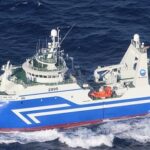 time to call it a day and step back from fishing – although he’s certain he has a busy retirement ahead of him. He has long been one of Iceland’s top skippers, consistently landing big trips of groundfish and has smashed 10,000 tonnes in some years. All the same, he says there’s no secret behind this success. Photos, >click to read< 13:57
time to call it a day and step back from fishing – although he’s certain he has a busy retirement ahead of him. He has long been one of Iceland’s top skippers, consistently landing big trips of groundfish and has smashed 10,000 tonnes in some years. All the same, he says there’s no secret behind this success. Photos, >click to read< 13:57
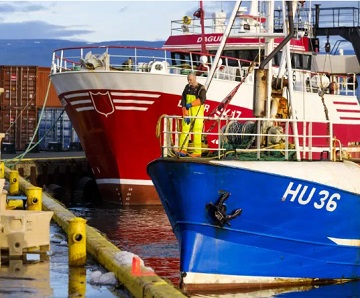
The Religion of Wokeism. A Fisherman by Any Other Name: Terminology in New Law Sparks Debate
A new law regarding ships’ crews that went into effect at the beginning of the month is sparking considerable debate throughout Iceland, but not because of the content of the law. Rather, critics have taken issue with the choice of wording in it, namely the use of the word fiskari, most easily translatable as ‘fisher,’ in lieu of the term fiskimaður, which literally means ‘fisher+man.’Critics, including some in the industry and current or former politicians, have called the word choice an example of the sterilization of Icelandic, or even an example of the language’s slide into nýlenska, or Orwellian Newspeak. >click to read< 14:41
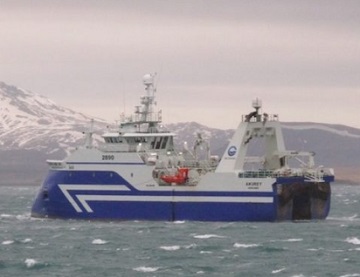
Twin-rigging yields results
Brim’s fresher trawler F/V Akurey is fishing now on the Hali grounds and according to skipper Jón Frímann Eiríksson, they were a few days into the trip before the weather improved enough to work both trawls. ‘To start with there wasn’t weather for fishing, practically blowing a storm, but it’s dropped away now. Today it’s been fine. We’ve been able to tow two trawls all day and fishing has been good,’ he said, and estimated that the catch so far is around 80 tonnes. The bulk of the catch is cod, plus some other species such as saithe. >click to read< 09:24
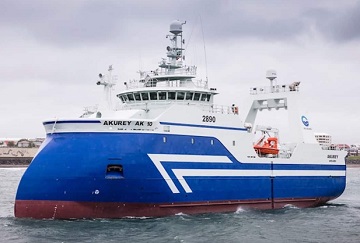
Icelandic trawler caught one hundred tons of cod in just 48 hours
It was Brim’s trawler “Akurey” that sailed west along the south coast of Iceland after a successful trip to the fishing grounds east of Iceland. According to skipper Eiríkur Jónsson, the catch is around 105 tonnes after almost two days of effective fishing. “We went east from Thorlákshöfn, where we landed last time, and sailed on to the first tow on Wednesday morning. The final move was on deck at five o’clock this morning. These are all fine cod, and I’m guessing that the average weight is about three kilos each,” says the skipper, >click to read< 15:31
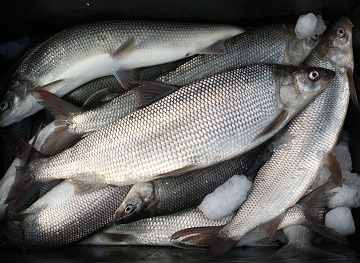
The Great Lakes-Iceland connection through the 100% Whitefish effort
While Great Lakes fish populations are constantly in a state of flux, one species has declined precipitously in the last decade: lake whitefish. But Great Lakes leaders and fisheries managers are looking ahead in planning to do more with less. And in the case of whitefish, a lot more. The search for a way to preserve an industry with a shrinking natural resource brought the Iceland Ocean Cluster (IOC) into focus. IOC was founded by Thor Sigfusson in 2012 with a dozen companies on-site. There are now 70. So, what is it? And could it work as a model for the Great Lakes’ new whitefish initiative? >click to read< 17:09
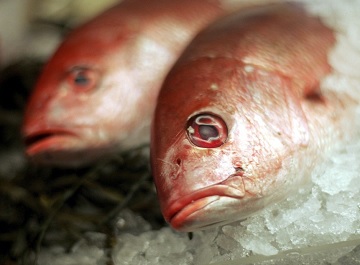
Catch Shares Enable Wealthy Landlords to Gobble Up Local Fisheries
A recent investigative report has reignited public discussion over catch shares, a controversial approach to fisheries management that privatizes the rights to fish. The investigation exposed how Blue Harvest Fisheries, owned by a billionaire Dutch family, became the largest holder of commercial fishing rights in New England, benefiting from lax antitrust regulations and pilfering profits from the local fishermen who work under them. As a commercial fisherman in Mississippi, I know these dynamics go well beyond New England. Here in the Gulf of Mexico, private equity firms and other large investors have come in and gobbled up the rights to fish, driving up the cost of fishing access and making it prohibitively expensive for fishermen like me to harvest fish in our own backyards. >click to read< 07:55
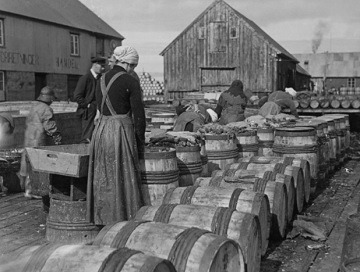
Iceland’s herring girls transformed a town before kicking off a tourist boom
Clad in waterproof coveralls, heavy boots and thick gloves, a group of women line up under the midnight sun, waiting for returning fishing boats to dock. As soon as a ship reaches the harbour, they kick into gear, pulling herring after herring from barrels, decapitating and gutting them, before packing them in salt and spices, singing while they work. Siglufjörður, or Siglo as it is known to locals, is an uncommonly scenic slice of northern Iceland. Before the herring industry started here in 1903, it was a sparsely populated hamlet with little work paid with money rather than meat or other goods. But as salted herring became a staple in many European countries, catching and processing the fish became its main focus and everything changed. >click to read< 11:32
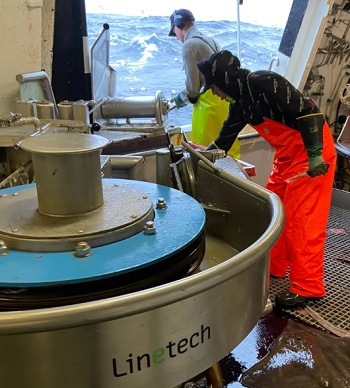
World’s First All-Electric Longline Handling System
F/V Kap Farvel is the first fishing boat in the world that started using the all-electric longline handling system from Mørenot. Already after one week of testing followed by seven weeks of fishing, the feedback from the skipper and crew is unanimous: This is the longline system of the future! For several years, Mørenot has been challenging the idea of a traditional hydraulic longline system with its first fully electric longline system for both deep sea and coastal fisheries. Seeing the opportunity of a high-tech electrical longline system, Mørenot has heavily invested in innovation that enables fishers to effortlessly achieve higher efficiency, lower energy consumption, and better working conditions. Mørenot’s VP Alf Rune Ose explains how their engineers in Iceland developed the complete mechanical system with an updated LineTech longline control system to revolutionize the fishing industry. Mørenot has designed a system that is suitable for fishing operations worldwide. photos, >click to read< 21:16
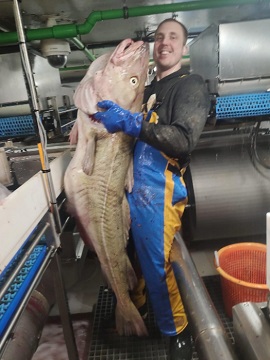
Largest Cod of the Year?
The crew of the trawler Bergey VE from Vestmannaeyjar islands had a reason to cheer this week, when they caught a huge cod, “It was a cod that weighed about 50 kg (110 lbs) and measured 1.8 meters (70 in),” states Captain Jón Valgeirsson. “It was old and respectable and managed to escape all nets and trawls year after year.” This could be the largest cod of the year. It was caught in the the Háfadýpi fishing ground. Last year’s largest cod weighed 51 kg. It was caught by the crew of the boat Sólrún EA near Kolbeinsey islet, north of Iceland. >click to read< 07:35
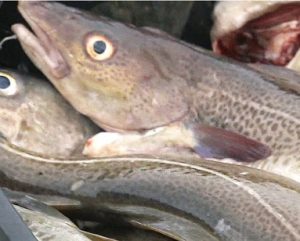
Iceland: Coastal Fishermen Unhappy With Reduced Cod Quota
Small boat fishermen in Iceland are unhappy with the government’s decision to reduce their cod fishing quota from 10,000 tonnes down to 8,500 for the coming summer season, Last year a total of 670 fishermen held coastal fishing licences. “Certain politicians predicted [coastal fishing] would explode. However, since the current system was implemented, the number of fishermen has fluctuated between 600 and 726. “While handline fishing is romantic, there’s a lot of hard work and sweat and tears mixed in with the romance,” >click to read< 08:55
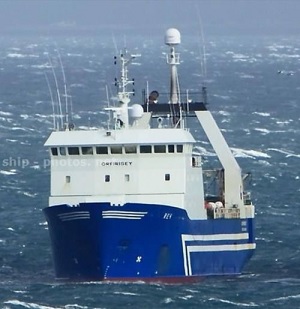
Örfirisey’s skipper Thór Thórarinsson ending a successful 50-year career at sea.
Brim’s freezer trawler Örfirisey docked in Reykjavík before Christmas after a good trip on fishing grounds to the south and west of Iceland and off the Westfjords. This was the final trip for Örfirisey’s skipper Thór Thórarinsson, ending a successful 50-year career at sea. Of this time, he has been on Örfirisey for around thirty years, since the trawler came to Iceland in 1992 from its previous owners in the Faroe Islands. >click to read< 22:35
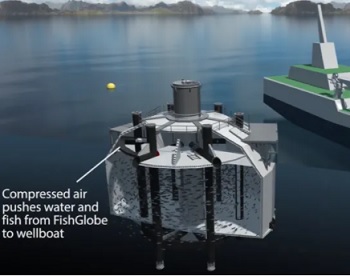
The last cowboys – a replay of the story of cattle in the American West
Norway, a country less than a quarter the size of Alaska, is on pace to bring 1.2 million tonnes of salmon to market this year, and the technologists in that country are talking about the potential to grow their production to 3 million tonnes per year by 2030. Chile, Scotland, the Faroe Islands, and Canada are all significant producers with lesser production in Australia, New Zealand, Iceland, France, Ireland and Finland. Meanwhile, land-based, recirculating aquaculture systems (RAS) farms are threatening to lead to an explosion in salmon aquaculture almost everywhere. To truly understand the threat these farmers pose to the future of one of Alaska’s oldest and still largest industries,,, >click to read< 08:52
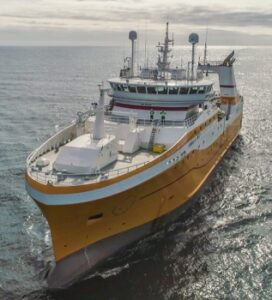
UK Fisheries call for tariffs on Norway, Greenland and Iceland to compensate for access loss of their waters
Despite two years of campaigning to save the UK’s distant-waters fishing industry, UK Fisheries Ltd’s state-of-the-art vessel Kirkella (pictured), a cod and haddock freezer trawler and part of the UK’s distant waters fishing fleet, is once again tied up in Hull. UK Fisheries still have no access to the Norwegian coastal waters where our crews should be working right now. >click to read< 07:13
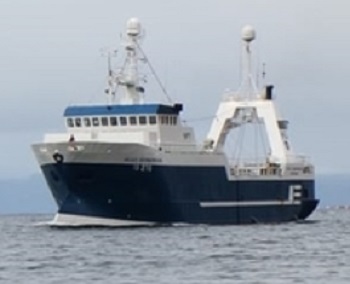
Five Unions Press Charges Against Fishing Company following Coronavirus Outbreak Aboard Fishing Vessel
Five unions are joining forces to press charged against a captain and fishing company for keeping a crew of 25 at sea for three weeks despite a COVID-19 outbreak on board. Twenty-three of the 25 crew members became infected by the novel coronavirus in the outbreak, many developing serious symptoms. The ship stayed out at sea for several weeks contrary to guidelines from authorities and many ill crew members kept working. The five unions are pressing charges against the captain of the freezer trawler Júlíus Geirmundsson, on which the incident occurred, as well as against the fishing company that runs the ship, Hraðfrystihúsið Gunnvör. >click to read< 14:33

“No one knew about this COVID thing,” says CEO that kept sick fishermen at sea
The CEO of a seafood company that kept COVID-infected fishermen at sea for three weeks has responded to public criticism with a statement and interview that leaves more questions than answers. Twenty-two of 25 crew members on one of the company’s ships contracted COVID-19 shortly after setting out to sea. The company has been under fire,,, Einar Valur’s statements in an interview with Vísir also seemed contradictory. Though he admitted the company “underestimated the conditions on board,” he also stated that “This is new. No one knew about this COVID thing. >click to read< 13:40
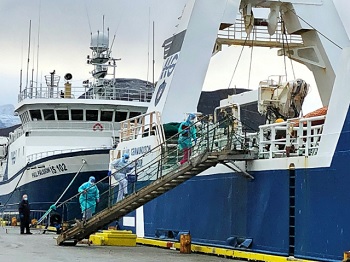
‘Deplorable Circumstances’ for Coronavirus Infected Freezer Trawler Crew
They’re out at sea and unable to go anywhere, watch men falling ill, but the processing of the fish continues, and they keep fishing; it is windy,” Finnbogi Sveinbjörnsson, head of the Union of the Residents of the West Fjords, “As our vice chairman so appropriately phrased it, ‘Fishermen work as long as they’re able to stand,’ but this is no joking matter,” he adds. He is referring to an issue widely discussed in Iceland over the weekend, where one after another, the crew members of the freezer trawler Júlíus Geirmundsson, owned by the fishing company Hraðfrystihúsið Gunnvör, fell ill while the trawler was out fishing and were denied the opportunity to return to harbor to be tested for COVID-19 until three weeks had gone by. >click to read< 08:53
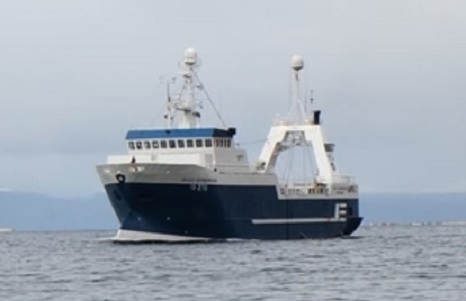
Fishing Company under Fire for Keeping Coronavirus Infected Crew at Sea for Three Weeks
Despite crew members developing flu-like symptoms one by one, Júlíus Geirmundsson didn’t return to harbour until it needed to refuel last Sunday, after three weeks at sea. During refuelling, the crew was tested for COVID-19 but left again for the fishing grounds before the results were in. They returned as soon as it was discovered that the majority of the crew had contracted COVID-19.,, Hákon Blöndal, the ship’s first engineer, called out the fishing company’s explanation,, “This isn’t the whole story, and people have to grow a pair and admit their mistakes,” >click to read< 15:38
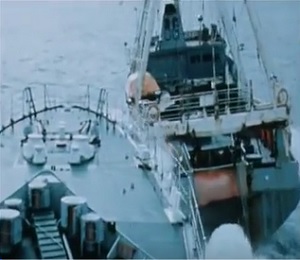
Fighting for Fish – The Cod Wars and Today: Lessons from an Almost War
Not once, but three times in the 20th Century, cod was almost the causus belli between Iceland and the United Kingdom in a string of events referred to collectively as the “Cod Wars.”1 The Cod Wars, taken together, make clear that issues of maritime governance and access to maritime resources can spark inter-state conflict even among allied nations. Fishing rights can be core issues that maritime states will vigorously defend. The First Cod War started on September 1st, 1958. Icelandic coastguardsmen sought to arrest and impound any British trawlers within their new 12-mile limit. >click to read< 09:59
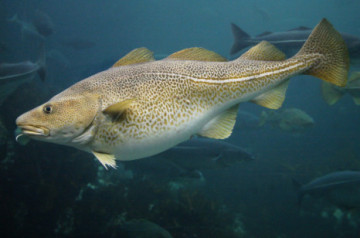
Icelandic Cod Spray Bodes Well Against Coronavirus
While several countries across the globe are vying to create a vaccine against COVID-19, Iceland, a nation of fishermen, has come up with a possible solution of its own. PreCold, a mouth spray intended to be used against the first symptoms of a cold based on cod enzymes, has proven efficient during tests and managed to deactivate about 98.3% of the virus that causes COVID-19, national broadcaster RÚV reported. The spray creates a protective film in the pharynx where the viruses that cause the common cold tend to localise and replicate. The film using enzymes extracted from cod offal, weakens viruses so they fail to replicate to a degree that makes the host sick. >click to read< 07:27
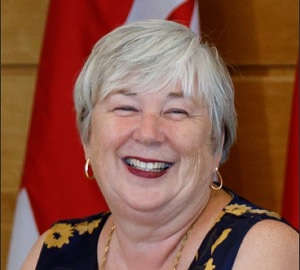
Further protection measures coming to protect North Atlantic right whales
Federal Fisheries Minister Bernadette Jordan says Ottawa will announce further measures in the coming weeks to protect the endangered North Atlantic right whale. Speaking to a fishing gear innovation summit in Halifax today, Jordan didn’t release any details of the coming measures.,, The minister says testing also continues on new technology such as ropeless gear, which could help reduce the risk of entanglements for whales. More than 250 harvesters and fishing gear manufacturers from Canada, the United States, Iceland and Norway are attending the two-day summit. >click to read< 12:50
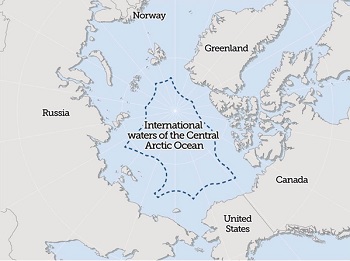
U.S. ratifies The Agreement to Prevent Unregulated High Seas Fisheries in the Central Arctic Ocean
The United States has become the fourth jurisdiction after Canada, the European Union and Russia to ratify a landmark international agreement that aims to prevent unregulated commercial fishery in the high seas of the Central Arctic Ocean, officials at the State Department announced Tuesday. The Agreement to Prevent Unregulated High Seas Fisheries in the Central Arctic Ocean, which was signed in Ilulissat, Greenland last October, includes the so-called Arctic Five – Canada, Norway, Russia, Denmark (Greenland and the Faroe Islands), the U.S. – as well as the major fishing nations – Iceland, Japan, South Korea, China and the EU. >click to read< 17:56






